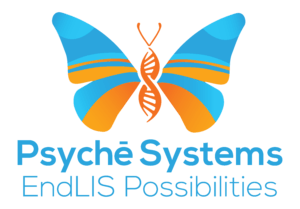In a few decades, the nature of lab information software has evolved significantly. Dealing with patient data and large volumes of samples has shifted from a manual and tedious process to one that’s automated. As a result, lab operations are much smoother, and the risk of making errors is significantly lower.
All this is thanks to the advent and use of lab information software. These solutions enable labs to have streamlined operations from sample collection, information storage, and the generation and delivery of reports. But, while things are more efficient nowadays, they can still be better.
And this is where Psyche Systems comes into the fore. We have a robust laboratory information management system (LIS) designed to keep up with the needs of modern, fast-paced labs. Along with enhancing the efficiency and accuracy of lab work, it also helps you achieve and maintain compliance.
Read on to learn how to consistently reach your goals by automating lab processes with powerful lab information software.
Critical Parts of a LIS that Make Lab Workflows go More Smoothly
Any lab work errors can have significant ramifications for you and your patients. Errors could include mixing up patient details or samples, leading to misdiagnoses or mixing up results. The best way to deal with such issues is to ensure they never happen.
Lab information software can help you achieve this through:
- Automation of routine laboratory tasks: A laboratory information system (LIS) can automate tasks like tracking specimens, ordering tests, and reporting results. This cuts down on the time and work needed to do these tasks.
- Better data management and reporting: It’s easier to store and organize laboratory data with a LIS, which lets lab managers look for trends and find ways to improve. The system can also make reports to meet compliance and regulatory needs.
- Electronic ordering and reporting of results: A library information system (LIS) can make electronic ordering and reporting of results possible. This reduces the need for paper-based processes and improves speed and accuracy.
- Compliance with regulatory requirements: By enforcing standard operating procedures and tracking and managing test results, a LIS can help labs meet regulatory requirements like HIPAA, CLIA, and OSHA.
- Supports teamwork and collaboration: Lab personnel can collaborate better as a LIS lets them share data, notes, and results, as well as work to fix problems and make processes better.
The Advantages of Using a LIS in the Lab
Our Lab Information Software comes with several features that enhance your lab operations. Some of the benefits you’ll enjoy include:
- Increased efficiency and productivity: By streamlining laboratory workflows, a laboratory information system (LIS) can reduce the time and work needed to finish routine tasks. This lets lab staff focus on more complex tasks.
- Errors are less likely, and data is more accurate: LIS can automate routine tasks and enforce standard operating procedures. This helps ensure that the data is correct and complete.
- Improved compliance with regulatory standards: A laboratory information system (LIS) can help labs meet regulatory requirements by enforcing standard operating procedures, tracking and managing test results, and creating reports to show compliance.
- Better communication and teamwork among lab staff: A laboratory information system (LIS) makes it possible for lab staff to share data, notes, and results, as well as work together to solve problems and make processes better. This can help create a culture of teamwork and continuous improvement.
By streamlining laboratory workflows, a LIS can reduce the time and labor required to perform routine tasks, as well as the need for paper-based procedures, which saves money on labor and materials.
Case Study: An Example of Lab Information Software (LIS) Implementation
When it comes to pathology services and cancer diagnostics, one of the leading brands is Aurora Diagnostics. They offer hospitals information technology solutions, personalized medicine consultations, and integrated diagnostics.
With over 200 board-certified pathologists, 29 community-based practices, and serving numerous facilities, Aurora needed a robust yet flexible solution that could handle its unique molecular workflow and reporting needs. Moreover, the company wanted a solution that could be adopted immediately without training personnel and vendors on a new system.
It is for this reason that Aurora Diagnostics chose Psyche Systems and nucleoLIS. Another reason they chose this system is that it allows them to capitalize on report templates from other LIS solutions in their molecular LIS. Moreover, with nucleoLIS, Aurora can integrate all their labs.
The system also made it easier to manage and report on data, which helped lab managers look for trends and find ways to improve things. For example, the system made reports on how long it took to finish a test, which helped lab managers find bottlenecks and decide which improvements to make first.
The implementation led to more efficiency and productivity, fewer mistakes, more accurate data, better compliance with regulatory standards, better communication among lab staff, and cost savings since less money was spent on labor and materials.
Conclusion
Lab managers need to use a LIS to ensure accuracy, efficiency, and compliance in today’s fast-paced labs. Future changes and trends in LIS systems, such as the integration of lab workflows, can make them even better.
At Psyche Systems, we offer LIS solutions that meet each lab’s unique needs and can integrate with other systems. Contact us today to get Laboratory Information Software customized to suit your lab.

